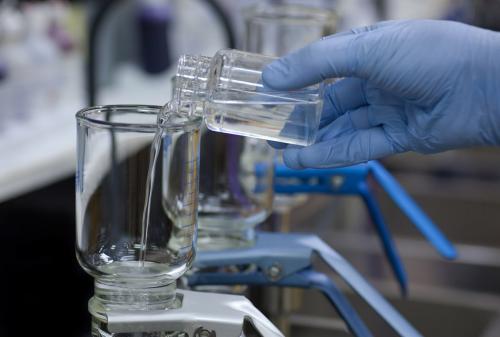Understanding Waste Water Testing and Its Importance to Ensure Environmental Protection

The increased
urbanization, growing population and more production have resulted in a rising consumption
of water and a consequent increment in the waste water quantities as well. The
growth of commercial, industrial and institutional entities has been a swift
process during the past few decades and each one has resulted in enhanced
demands of water and generation of enormous wastewater quantities as a result.
The
ever-increasing quantities of water utilized and generation of wastewater have
resulted in an imperative need to treat the same so as to ensure best
environmental protection. In order to allow for a safe discharge of wastewater,
it becomes essential to test the samples for knowing the types and levels of
by-products and to ensure they conform to the regulatory limits.
Ensuring
safety of wastewater discharge with water laboratory testing
The tests for
waste water conducted at dedicated laboratories have a prime aim to determine the
various contaminants, by-products and pollutants that are present in the samples
and to ensure their quantity and type follow the regulatory standards for allowing
a safe discharge and minimum environment impact.
The following
four quality analysis testing categories comprise wastewater testing -
Organic
testing
Wastewater is
comprised of a vast number of by-products and they have diverse
characteristics. Organic matter constitutes to be the highest quantity
concentration in wastewater. The concentration of organic or carbon-based
compounds in waste water determines its strength.
Solid content
testing
The
particulate solids that are dissolved in water or just remain suspended can
effectively be analyzed by laboratory testing. These include the total solids, suspended
solids, dissolved solids as well as the volatile and fixed solids. Only after
the wastewater samples conform to comprise of permissible quantities and types
of solids, then only it is deemed safe for discharge.
Nutrient
content testing
The
concentration of major nutrients such as nitrogen and phosphorous that can
result in aging of water bodies needs to be calculated. These nutrient
constituents determine the eutrophication acceleration of waste water.
Physical
properties testing
The various
analytical tests conducted on waste water samples are developed so as to determine
the levels and parameters of various physical properties such as Ph, temperature,
odor, color as well as turbidity.
These
analytical tests even though are categorized separately, they remain interdependent.
If one of the testing parameters identifies the presence of a particular contaminant,
the same can be identified by other parameters of testing categories as well.
Wastewater
when discharged without proper treatment into water bodies can pollute and
contaminate the environment. In order to protect such pollution and
contamination, analytical testing of wastewater before discharge is imperative.
Only after conducting these tests, the necessary treatment measures can be processed
so as to ensure complete safety of the environment.
QA Testing
Laboratories has an advanced infrastructure of water quality testing laboratory where
it conducts various tests so as to determine complete safety, regulatory
compliance and ultimate precision of analytical procedures on wastewater.
Post Your Ad Here
Comments